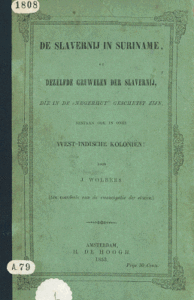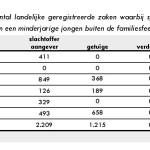Human Rights, State Sovereignty, And International Law
We live in an era where virtually every government on the planet claims to pay allegiance to human rights and respect for international law. Yet, violations of human rights and plain human decency continue to occur with disturbing frequency in many parts of the world, including many allegedly “democratic” countries such as the United States, Russia, and Israel. Indeed, Donald Trump’s immigration policy, Putin’s systematic repression of dissidents, and Israel’s abominable treatment of Palestinians seem to make a mockery of the principle of human rights. Is this because “faulty” forms of government or because of some Inherent tension between state sovereignty and human rights? And what about the international regime of human rights? How effective is it in protecting human rights? Richard Falk, a world renowned scholar of International Relations and International Law sheds light into these questions in the exclusive interview below with C. J. Polychroniou.
Richard Falk is Alfred G. Milbank Emeritus Professor of International Law, Politics, and International Affairs at Princeton University and the author of some 40 books and hundreds of academic articles and essays. Among his most recent books are A New Geopolitics (to be published in December 2018); Palestines’s Horizon: Toward a Just Peace (2017); Humanitarian Intervention and Legitimacy Wars: Seeking Justice in the 21st Century (2015); Chaos and Counterrevolution: After the Arab Spring (2014); and Path to Zero: Dialogues on Nuclear Dangers (2012).
C. J. Polychroniou: Richard, you taught International Law and International Affairs at Princeton University for nearly half a century. How has international law changed from the time you started out as a young scholar to the present?
Richard Falk: You pose an interesting question that I have not previously thought about, yet just asking it makes me realize that this was a serious oversight on my part. When I started thinking on my own about the role and relevance of international law during my early teaching experience in the mid-1950s, I was naively optimistic about the future, and without being very self-aware, I now understand that I assumed that moral trajectory that made the future work out to be an improvement on the past and present, that there was moral progress in collective behavior, including at the level of relations among sovereign states. I thought of the expanding role of international law as a major instrument for advancing progress toward a peaceful and equitable world, and endeavored in my writing to encourage the U.S. Government to align its foreign policy with international law, arguing, I suppose in a liberal vein, that such alignment would promote a better future for all while at the same time being beneficial of the United States, especially given the overriding interest in avoiding World War III.
My views gradually evolved in more critical and nuanced directions. As my interests turned toward the dynamics of decolonization, I came to appreciate that international law had legitimized European colonialism, and the exploitative arrangements that were imposed on the countries of the global south. I realized that the idealistic identification of international law with peace and justice was misleading, and at best only half of the story. International law was generated by the powerful to serve their interests, and was respected only so long as vital interests of these dominant states were not threatened.
The Vietnam War further influenced me to adopt a more cautious view of international law, and even more so, of the United Nations. I opposed the war from the outset from the perspective of international law, citing the most basic prohibitions on intervention in the internal affairs of sovereign states and the core prohibition of the UIN Charter against all recourses to aggressive force. I did find it useful to put the debate on Vietnam policy in a legal format as the country was then under the sway of liberal leadership, although tinged with Cold War geopolitics and ideology. The defenders of Vietnam policy, motivated by Cold War considerations, relied on legal apologetics as well as claims that it was important for world order to contain the expansion of Communist influence, and that the adversary in Vietnam was China rather than North Vietnam. The legal debate to which I devoted energy for ten years convinced me that international law on war/peace issues was subordinated to geopolitics including by the Western democracies, and that even so, legal counter-arguments were always available to governments eager to disguise their reliance on geopolitical priorities. International law remains useful and even necessary for the routine transnational activities of people and governments, stabilizing trade and investment relations, but often in ways that favor the rich, and issues pertaining to questions of safety, communications, and tourism exhibit a consistent adherence to an international law framework. Read more
Trump’s Economy Is On A Path To A Bust
 Whose interests are being promoted by macroeconomic policies in the United States? Is Donald Trump good for the economy? Is he responsible for the current economic indicators, which seem to be healthy? Are his tariff policies good for workers here and abroad? And how does his approach to economics differ from Obamas?
Whose interests are being promoted by macroeconomic policies in the United States? Is Donald Trump good for the economy? Is he responsible for the current economic indicators, which seem to be healthy? Are his tariff policies good for workers here and abroad? And how does his approach to economics differ from Obamas?
Howard Sherman is Emeritus Professor of Economics at the University of California at Riverside, a founding member of the Union for Radical Political Economics and author of Inequality, Boom, and Bust: From Billionaire Capitalism to Equality and Full Employment and Principles of Macroeconomics: Activist vs Austerity Policies (co-authored with Michael Meeropol, and now in its second edition). In an exclusive interview for Truthout, Sherman provides answers to these questions and exposes the myths associated with the “success story” of Trumps economy. In fact, Sherman contends that the US economy is on the verge of an economic recession and possibly a Great Depression.
C. J. Polychroniou: Howard, what are the goals and aims of macroeconomic policy in the US, and what interests are they designed to protect and promote?
Howard Sherman: There are two different views in the US over macroeconomic policy. One is the conservative view, which says that capitalism is the best possible economic system, so it needs no reforms, or just a few minor ones. Capitalism functions smoothly and there is a recession only when there is an incorrect government policy. Furthermore, there is never too much inequality because inequality merely reflects the productivity of an individual, so no reform is needed to change inequality.
The second view is the progressive economics view, held by a minority. In general, progressives believe that inequality represents extremely high profits made by corporations that exploit the labor of workers at low wages. Inequality increases with every capitalist expansion, meaning that there is an increase in the ratio of all profits to all wages. Moreover, this increase in inequality means that the demand for goods and services by workers, based on their wages and salary, is limited. As such, the rising supply of goods to the market far outdistances the demand for these goods by the entire working population. The result is an economic recession or a depression that produces heavy unemployment in every downturn business cycle.
The conservative view that capitalism is near perfect helps to prevent reforms of the system, so it makes the wealthy owners very happy. On the other hand, the progressive policy that is necessary to raise wages and salary reflects the views of the great majority of the working population. Read more
J. Wolbers ~ De slavernij in Suriname, of dezelfde gruwelen der slavernij, die in de ‘Negerhut’ geschetst zijn, bestaan ook in onze West-Indische Koloniën
 Hoort het Nederlanders! deze woorden, aan het hoofd van dit opstel geplaatst, zijn uitgesproken door een’ man, die door een langdurig verblijf in de West-Indiën in staat was uit eigene ondervinding te spreken, en die alzoo als een bevoegd getuige in deze zaak kan optreden. Het was op eene vergadering der Nederlandsche Maatschappij ter bevordering van de afschaffing der slavernij, gehouden te ’s Gravenhage, den 20sten October 1853, dat hij deze woorden uitsprak. Zijne taal was niet die der opgewondenheid, maar der bezadigde overtuiging, die zelfs zeer tegen overdrevene, eenzijdige beschouwingen in deze waarschuwde, en de toestanden in de West-Indiën nog in vele opzigten verdedigbaar achtte.
Hoort het Nederlanders! deze woorden, aan het hoofd van dit opstel geplaatst, zijn uitgesproken door een’ man, die door een langdurig verblijf in de West-Indiën in staat was uit eigene ondervinding te spreken, en die alzoo als een bevoegd getuige in deze zaak kan optreden. Het was op eene vergadering der Nederlandsche Maatschappij ter bevordering van de afschaffing der slavernij, gehouden te ’s Gravenhage, den 20sten October 1853, dat hij deze woorden uitsprak. Zijne taal was niet die der opgewondenheid, maar der bezadigde overtuiging, die zelfs zeer tegen overdrevene, eenzijdige beschouwingen in deze waarschuwde, en de toestanden in de West-Indiën nog in vele opzigten verdedigbaar achtte.
En echter, hoezeer ook deze waardige man zijne stem tegen de slavernij hooren liet, en ijverig medewerkte, om het lot der slaven te verbeteren en plannen tot hunne vrijmaking aan de Regering voor te stellen—toch was het nog aan hem te zien, dat het verkeer sedert zoo vele jaren in een land, waar de slavernij tot eenen geregelden maatschappelijken toestand behoort, niet kan nalaten het gevoel op dit punt eenigzins te verstompen. Ja, ik werd op nieuws bevestigd in de overtuiging, dat men, levende onder eene dusdanige atmospheer, zich niet, of ten minste zeer moeijelijk, van haren invloed kan vrijwaren, en dat dien ten gevolge van de gunstige beschouwingen der slavernij in West-Indiën, hoezeer ook geheel te goeder trouw gegeven, nog wel iets af te dingen valt.
Zien wij dit onder anderen uit het volgende:
De reeds meergemelde heer deelde der vergadering eenige fragmenten uit eenen brief van een overheidspersoon in het district Nickerie mede, waarin deze meldde, dat het aldaar rustig was, dat er bijna geene ontvlugtingen van slaven plaats hadden, dat het verbod aan de eigenaars gegeven, om hunne slaven op hunne goederen niet meer eigenmagtig te tuchtigen, goed werkte; terwijl, daar deze tuchtigingen nu door en onder opzigt der policie geschiedden, het lot van den slaaf zeker eene groote verbetering ondergaan had. Evenwel erkende hij toch vernomen te hebben, dat de straffen, op de plantagiën toegediend, nog dikwijls zeer buitensporig waren. Read more
David Pinto & Paul Cliteur (red.) ~ Moord op Spinoza – De opstand tegen de Verlichting en moderniteit
David Pinto en Paul Cliteur nodigden gelijkgestemde auteurs uit een persoonlijke bijdrage te leveren aan de bundel ‘Moord op Spinoza’. Het modernistisch wereldbeeld staat onder druk, bijna wekelijks vindt er wel een aanslag plaats die wordt opgeëist door ISIL of een ander islamitisch-terroristische groepering. Die aanslagen worden gemotiveerd door de terroristen zelf onder verwijzing naar een premodern, maar specifiek ‘theoterroristich’ wereldbeeld. Zij spreken in negatieve termen over democratie en willen die vervangen door een theocratie.
Zij bekritiseren individuele rechten van de mens en komen op voor de rechten van Allah. Europese politici weten niet wat te doen terwijl “multiculturalisten, policoristen en postmodernisten” partij kiezen tegen westerse waarden die als ’koloniaal’, ‘kapitalistisch’, ‘arrogant’ of ‘eurocentrisch’ worden ‘gedeconstrueerd, aldus Cliteur en Pinto. Kan de moord op de Verlichting nog worden gestopt?
Het eerste essay Dubbel Clash: religieus en cultureel – De botsing tussen moderne en premoderne waarden is geschreven door hoogleraar interculturele communicatie David Pinto, geboren en getogen in een klein berberstadje aan de Hoge Atlas in Marokko, kind van joods orthodoxe analfabetische ouders. Hij onderzoekt hoe het kan dat mensen zo verschillen wat betreft waarden, normen, communicatie, gedrag, perceptie en beleving. Hij heeft daartoe een fijnmazig structuurtheorie ontwikkeld. Pinto concludeert dat de botsing tussen het waardenstelsel van hedendaagse vluchtelingen en migranten van het Westen niet
slechts ligt bij religie maar ook bij cultuur. Men erkent het probleem niet en de migranten worden te weinig uitgedaagd zich aan te passen. De grote fout van de linkse denkers is dat zij vanuit de westerse notie van gelijkwaardigheid denken. De bedreiging is slechts te stoppen door het probleem zonder angst te onderkennen, voor de volle 100 procent voor de verworven Verlichting en moderniteit te gaan – dus bijvoorbeeld geen gescheiden zwemmen voor vrouwen en mannen toestaan en ophouden met paternalisme. Hierbij passende maatregelen moeten worden getroffen.
Voor jurist en filosoof Paul Cliteur is de inpassing, de accommodatie van religie binnen het politieke kader van de moderniteit problematisch, waarbij het moderne politieke wereldbeeld zich laat leiden door democratie, rechtsstaat en mensenrechten. Hij schetst in zijn bijdrage Moderniteit en premoderniteit in de staatstheorie & de moord op Spinoza vijf modellen voor de verhouding staat en religie. De premoderne modellen van Politiek atheïsme (staat verbiedt godsdiensten) en Theocratie (staat steunt één specifieke godsdienst) en de moderne modellen van Staatsgodsdienst (staat kiest één religie als leidend voor de staat, maar wel met keuzevrijheid aan het individu), Multiculturalisme (staat ondersteunt alle godsdiensten), en als vijfde model Laïcité (secularisme, staat beschermt slechts de individuele keuze voor godsdienst). Voor Cliteur is secularisme het enige model dat rechtdoet aan de democratie en dat moeten we verdedigen. Het Westen is in de ban van de religie van ontkenning: elke relatie tussen radicalisering en het radicaal gedachtegoed wordt ontkend, aldus Cliteur. Meebuigen is echter geen oplossing: multiculturalisme is suïcidaal. Read more
- Page 2 of 2
- previous page
- 1
- 2




